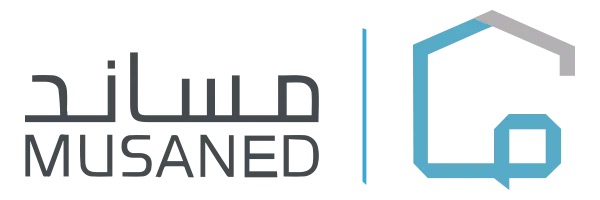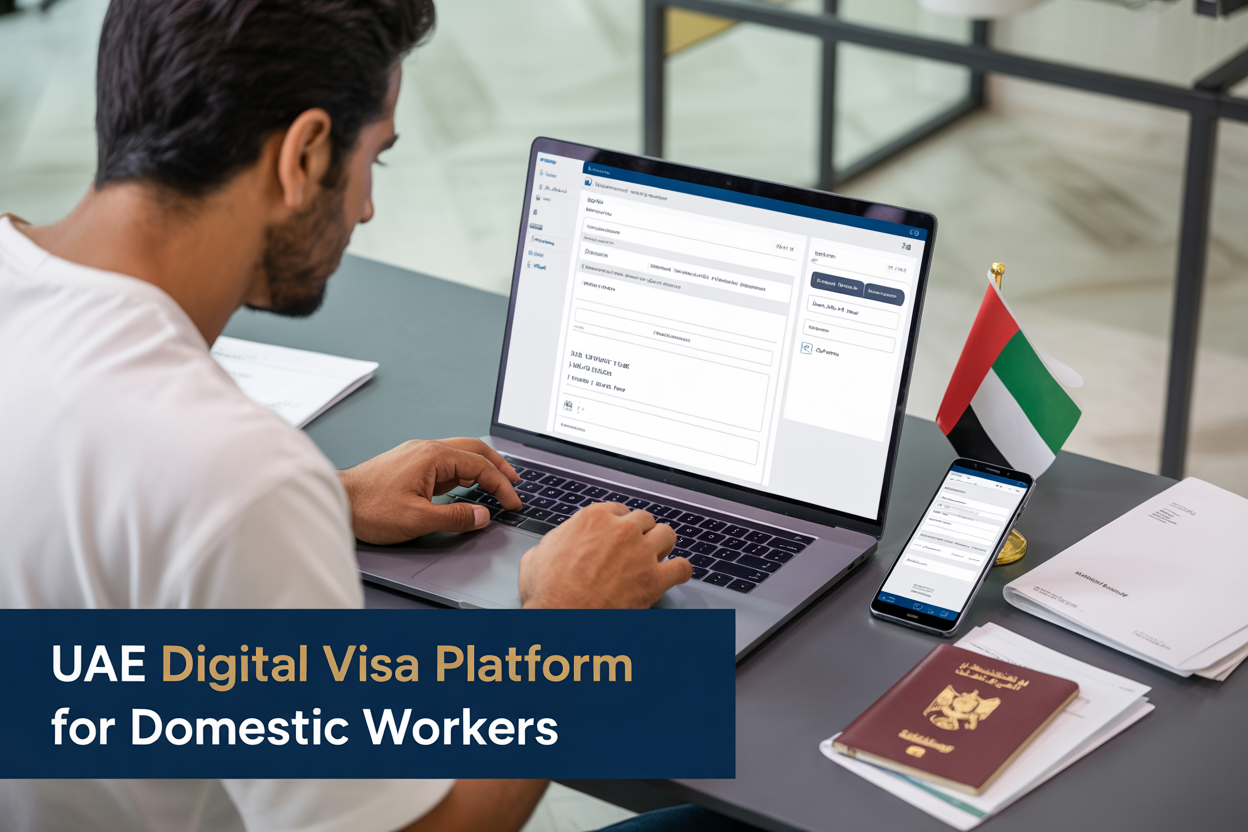How to Hire a Housemaid in Qatar: Complete Legal Guide

How to Hire a Housemaid in Qatar: Complete Legal Guide
Hiring a housemaid in Qatar requires careful attention to the country’s specific labor laws and visa requirements. This comprehensive guide is designed for expatriate families, Qatari nationals, and employers who need domestic help while staying compliant with local regulations.
Getting the hiring process wrong can lead to hefty fines, legal complications, and unnecessary stress for both you and your potential employee. Qatar’s labor laws have specific rules for domestic workers that differ from standard employment regulations.
We’ll walk you through Qatar’s legal framework for domestic workers and explain exactly what documentation and permits you need to get started. You’ll also learn how to find reliable recruitment channels and navigate the visa processing requirements that make hiring legal and straightforward.
By the end of this guide, you’ll have a clear roadmap for hiring domestic help the right way in Qatar.
Understanding Qatar’s Legal Framework for Domestic Workers

Overview of Qatar’s Labor Law for Domestic Workers
Qatar’s domestic worker legislation underwent major changes with Law No. 15 of 2017, which specifically addresses the rights and obligations of domestic workers and their employers. This law replaced the previous Kafala system’s harsh restrictions and created a comprehensive framework that governs housemaid employment relationships.
The legislation covers all domestic workers, including housemaids, nannies, gardeners, drivers, and security guards working in private households. Unlike the general labor law, this specialized statute recognizes the unique nature of domestic work and provides tailored protections for workers who live and work within private homes.
Key provisions include mandatory written contracts in both Arabic and the worker’s native language, standardized working hours with weekly rest periods, and clear termination procedures. The law also establishes minimum wage requirements and mandates that employers provide suitable accommodation, medical care, and annual leave.
Employers must register their domestic workers with the Ministry of Administrative Development, Labor and Social Affairs within 60 days of arrival. This registration process creates an official record that protects both parties and ensures compliance with legal requirements.
Key Rights and Protections Under Qatari Legislation
Domestic workers in Qatar enjoy comprehensive legal protections that safeguard their welfare and dignity. Workers have the right to retain their passports and identification documents, marking a significant departure from previous practices where employers commonly confiscated these items.
The law guarantees several fundamental rights:
- Fair compensation: Minimum wage requirements with monthly payment schedules
- Rest periods: At least 24 consecutive hours off per week
- Medical coverage: Free healthcare through the national insurance system
- Safe accommodation: Private, suitable living quarters with proper ventilation and facilities
- Communication access: Right to communicate with family and friends without restriction
- Exit permits: Freedom to leave the country during vacation periods with proper documentation
Workers can change employers without requiring their current employer’s consent, provided they give appropriate notice as outlined in their contract. This mobility provision prevents exploitation and gives workers greater control over their employment circumstances.
The legislation also prohibits employers from imposing additional fees or charges on workers for visa processing, medical examinations, or other employment-related costs. These expenses remain the employer’s responsibility throughout the employment relationship.
Penalties for Non-Compliance with Legal Requirements
Qatar enforces strict penalties for employers who violate domestic worker protection laws. Violations can result in both financial penalties and criminal charges, depending on the severity and nature of the offense.
Financial penalties range from QAR 6,000 to QAR 50,000 for various infractions:
| Violation Type | Fine Amount (QAR) |
|---|---|
| Failure to register worker | 6,000 – 12,000 |
| Withholding wages | 10,000 – 25,000 |
| Passport confiscation | 15,000 – 30,000 |
| Inadequate accommodation | 8,000 – 20,000 |
| Contract violations | 12,000 – 50,000 |
Serious violations such as physical abuse, sexual harassment, or forced labor can result in criminal prosecution with potential imprisonment and deportation for expatriate employers. The authorities take these cases seriously and investigate complaints thoroughly.
Repeat offenders face escalated penalties and may be banned from employing domestic workers in the future. The Ministry maintains a database of violations to track employer compliance history and prevent problematic employers from exploiting the system.
Workers can report violations through multiple channels, including the Ministry’s hotline, mobile applications, and labor offices throughout Qatar. The government has established these reporting mechanisms to encourage workers to speak up about mistreatment without fear of retaliation.
Essential Documentation and Permits Required

Sponsor Visa Requirements and Eligibility Criteria
Qatar operates under a strict sponsorship system where only eligible individuals can sponsor domestic workers. The sponsor must be a Qatari citizen or a legal resident with a valid residence permit. Your monthly salary needs to be at least QR 10,000 to qualify for sponsoring a housemaid, though this amount may change based on current regulations.
You’ll need to provide several key documents to prove your eligibility:
- Valid Qatar ID or residence permit
- Salary certificate from your employer
- Bank statements covering the last three months
- Tenancy contract or property ownership documents
- No Objection Certificate (NOC) from your employer if you’re an expat
- Marriage certificate and family book (if applicable)
The sponsor takes full legal responsibility for the domestic worker during their stay in Qatar. This includes ensuring they have proper accommodation, healthcare coverage, and adherence to local laws.
Work Permit Application Process and Timeline
The work permit application starts at the Ministry of Administrative Development, Labour and Social Affairs (MADLSA). You’ll submit your application online through the Hukoomi portal or visit their offices directly.
The typical timeline looks like this:
| Stage | Duration | Requirements |
|---|---|---|
| Initial Application | 2-3 days | Complete documentation submission |
| Ministry Review | 7-10 days | Background checks and verification |
| Approval/Rejection | 1-2 days | Final decision notification |
Required documents for the work permit include:
- Completed application form with sponsor and worker details
- Copy of the employment contract
- Sponsor’s salary certificate and bank statements
- Worker’s passport copy and photographs
- Educational certificates (if required for specific positions)
Processing fees range from QR 500 to QR 1,000 depending on the worker’s nationality and contract duration. Rush processing is available for an additional fee but isn’t always guaranteed.
Health Certificate and Medical Examination Standards
Every domestic worker must undergo comprehensive medical examinations before entering Qatar. The health certificate must be issued by an approved medical center in the worker’s home country and should be no older than three months at the time of visa application.
The medical examination covers:
- Complete physical examination
- Chest X-ray for tuberculosis screening
- Blood tests for HIV, Hepatitis B and C, and syphilis
- Pregnancy test for female workers
- Mental health evaluation
- Vision and hearing tests
Some countries have pre-approved medical centers that Qatar recognizes directly. Workers from these locations can get their certificates processed faster. The health certificate must be attested by the relevant authorities in the home country and then by the Qatari embassy or consulate.
Additional medical screening happens upon arrival in Qatar. The worker will visit a local health center within the first week for verification tests. If any health issues are discovered that weren’t disclosed in the original certificate, it can lead to immediate deportation.
Police Clearance and Background Verification Documents
Background verification is a critical step that cannot be skipped. The police clearance certificate must come from every country where the worker has lived for more than six months during the past five years.
The certificate should include:
- Full criminal background check
- Court records verification
- Any pending legal cases or investigations
- Character reference from local authorities
- Employment history verification (where applicable)
Each police clearance certificate needs proper attestation. Start with local authorities in the issuing country, then move to the Ministry of Foreign Affairs, and finally get approval from the Qatari embassy or consulate. This process can take anywhere from two weeks to two months depending on the country.
Some nations have streamlined digital systems that speed up the process, while others still rely on manual verification. Countries with high volumes of workers going to Qatar often have dedicated departments handling GCC-related documentation.
The certificates must be translated into Arabic by certified translators if issued in other languages. Keep multiple copies of all documents as various government departments will require original copies during different stages of the process.
Background verification also includes checking with previous employers in the domestic work sector. Qatar maintains a database of domestic workers who have violated their contracts or committed offenses, and this information is cross-referenced during the application process.
Finding Reliable Housemaid Recruitment Channels

Licensed Recruitment Agencies vs Independent Hiring
Licensed recruitment agencies offer the most secure path for hiring domestic workers in Qatar. These agencies hold proper licenses from the Ministry of Administrative Development, Labor and Social Affairs (MADLSA) and provide comprehensive services including background verification, legal documentation, and ongoing support. The major advantage lies in their established relationships with labor-sending countries and their ability to handle visa processing efficiently.
When working with licensed agencies, expect to pay service fees ranging from QAR 3,000 to QAR 8,000, depending on the worker’s nationality and experience level. These agencies typically provide replacement guarantees if the hired worker proves unsuitable within the first few months. They also handle the complex paperwork required for work permits and residence visas.
Independent hiring, while less expensive upfront, carries significant legal risks. You become responsible for all documentation, visa processing, and compliance with labor laws. This approach requires extensive knowledge of Qatar’s legal requirements and can result in complications if proper procedures aren’t followed.
| Aspect | Licensed Agencies | Independent Hiring |
|---|---|---|
| Cost | QAR 3,000-8,000 | Lower initial cost |
| Legal Support | Full compliance assistance | Self-managed |
| Background Verification | Professional screening | Personal responsibility |
| Replacement Guarantee | Usually included | Not available |
| Processing Time | 4-8 weeks | Variable, often longer |
Online Platforms and Digital Recruitment Services
Digital platforms have transformed the domestic worker recruitment landscape in Qatar. Websites like Tadbeer, ServiceMarket, and local apps provide access to pre-screened candidates with verified documents. These platforms typically charge subscription fees or per-hire commissions while offering features like video interviews, skill assessments, and rating systems.
Most reputable online services partner with licensed agencies to ensure legal compliance. They provide detailed profiles including work history, language skills, and previous employer references. The convenience of browsing candidates from home and conducting initial interviews via video chat makes these platforms increasingly popular among Qatar residents.
However, exercise caution with unregulated platforms or social media groups where individuals post directly. These channels often lack proper verification processes and may expose you to fraudulent documents or illegal workers. Stick to established platforms that clearly display their license numbers and partnership agreements with recognized recruitment agencies.
Key features to look for in digital recruitment services:
- MADLSA license verification
- Comprehensive background checks
- Transparent pricing structure
- Customer support in Arabic and English
- Mobile app functionality for easy communication
Community Recommendations and Referral Networks
Personal recommendations from trusted friends, colleagues, and neighbors remain one of the most reliable recruitment methods in Qatar’s expatriate community. These referrals often come with firsthand testimonials about work quality, reliability, and compatibility with family dynamics.
Many residential compounds and expatriate communities maintain informal networks where departing families recommend their domestic workers to newcomers. These workers often prefer staying within familiar community circles, creating win-win situations for both parties. WhatsApp groups, community Facebook pages, and compound notice boards frequently feature such opportunities.
When pursuing community referrals, verify that the worker’s visa transfer is legally possible and that all documentation remains valid. The previous employer should provide a No Objection Certificate (NOC) for visa transfer, along with copies of the worker’s Qatar ID, work permit, and health card.
Professional networks also prove valuable, particularly through:
- Embassy community groups
- International school parent networks
- Corporate HR departments
- Religious and cultural organizations
- Sports and social clubs
Always conduct the same thorough background checks and documentation review as you would with agency-sourced candidates. Personal recommendations don’t eliminate the need for proper legal procedures and contract formalization.
Conducting Legal Interview and Selection Process

Structuring Compliant Interview Questions
When interviewing potential housemaids in Qatar, your questions must align with local labor laws and cultural norms. Start with open-ended questions about their previous work experience, daily routines they’re comfortable managing, and their understanding of household responsibilities. Ask about specific skills like cooking traditional meals, cleaning techniques, or childcare experience if relevant to your needs.
Avoid questions that could be considered discriminatory under Qatar’s labor regulations. Don’t ask about marital status, family planning, religious practices, or personal financial situations. Instead, focus on work-related topics such as availability for different shifts, flexibility with tasks, and their ability to work independently.
Sample compliant questions include: “Describe your typical day in your previous household position,” “How do you prioritize multiple cleaning tasks?” and “What cooking styles are you most experienced with?” These questions help assess competency while respecting privacy boundaries.
Always conduct interviews in a professional setting with proper documentation of the process. Keep records of all questions asked and responses received, as this documentation may be required during the visa application process.
Verifying Credentials and Work Experience
Proper credential verification protects both you and your potential employee. Request original documents including educational certificates, previous employment letters, and any relevant training certifications. Many domestic workers from countries like the Philippines, Sri Lanka, or India come with formal training certificates in housekeeping or childcare.
Contact previous employers directly when possible. Ask specific questions about work quality, reliability, and any issues that arose during employment. Be prepared for time zone differences when reaching international references, and consider using video calls to verify the authenticity of recommendations.
Check for gaps in employment history and ask candidates to explain any periods without work. Look for consistency in their stories across multiple conversations. Red flags include reluctance to provide references, vague descriptions of previous duties, or inability to provide contact information for former employers.
Professional recruitment agencies often handle initial verification, but conducting your own follow-up checks adds an extra layer of security. Document all verification attempts and results for your records.
Language Proficiency Assessment Methods
Effective communication forms the foundation of a successful working relationship. Assess language skills through practical conversation rather than formal testing. Start with basic greetings and personal questions, then progress to household-specific vocabulary and emergency situations.
Test comprehension by explaining household rules or daily schedules and asking them to repeat back key points. This reveals both understanding and speaking ability. Role-play common scenarios like answering the phone, taking messages, or explaining a household accident to gauge their communication skills under pressure.
For families with children, assess the candidate’s ability to communicate safety instructions and basic commands. Ask them to describe how they would handle common childhood situations or explain simple games and activities.
Don’t overlook non-verbal communication skills. Observe their body language, eye contact, and overall comfort level during conversations. These factors often indicate how well they’ll integrate into your household’s daily rhythm.
Cultural Compatibility Evaluation
Cultural fit goes beyond language and skills. Discuss daily routines, meal preferences, and household customs to identify potential conflicts before they arise. Ask about their experience working with families from different cultural backgrounds and how they adapted to various household styles.
Address dietary requirements and cooking preferences early. If your family follows specific dietary restrictions or enjoys particular cuisines, ensure your candidate can accommodate these needs. Discuss religious observances and how they might affect work schedules, particularly during Ramadan or other significant periods.
Evaluate their comfort level with Qatar’s cultural norms and lifestyle. Discuss topics like dress codes, interaction with male family members, and social customs. Candidates who have worked in the Gulf region previously often have better understanding of local expectations.
Consider personality traits that align with your family’s lifestyle. Some households prefer quiet, reserved helpers, while others appreciate more outgoing personalities. Trust your instincts about whether their demeanor matches your family’s energy and communication style.
Drafting Employment Contracts That Comply with Qatar Law

Mandatory Contract Terms and Clauses
Every employment contract for domestic workers in Qatar must include specific mandatory elements as outlined by the Ministry of Labour. The contract needs to be written in both Arabic and English, with the Arabic version taking legal precedence in case of disputes. Basic identification details for both employer and employee are essential, including full names, passport numbers, and Qatar ID information.
The contract must clearly state the job title, specific duties, and work location. Qatar law requires explicit mention of the probation period, which cannot exceed six months for domestic workers. Medical insurance coverage details are mandatory, including the insurance provider and coverage limits. The contract should also specify who bears responsibility for medical expenses and annual health check-ups.
Salary Structure and Payment Schedule Requirements
Qatar’s minimum wage law applies to domestic workers, establishing QAR 1,000 as the baseline monthly salary. The contract must specify the exact salary amount, payment method, and schedule – typically monthly payments through bank transfer. Any additional allowances, such as food allowance (minimum QAR 500) or accommodation allowance, need clear documentation.
Payment dates must be consistent, usually by the end of each month. Late payment penalties and procedures should be outlined. The contract should address salary increases, if any, and the criteria for such adjustments. Currency specifications are important, especially for workers from different countries who might expect payments in their home currency.
Working Hours and Rest Day Provisions
Standard working hours for domestic workers are capped at 10 hours per day with adequate rest periods. The contract must specify daily working hours, including start and end times. Weekly rest days are mandatory – at least one full day off per week, typically Friday or another mutually agreed day.
Overtime provisions need clear definition, including rates and approval procedures. Rest periods during working days should be specified, allowing for meals and short breaks. Live-in arrangements require additional clauses about personal time and privacy boundaries. The contract should address holiday working arrangements and compensation for working on designated rest days.
Termination Conditions and Notice Periods
Both parties have rights regarding contract termination, which must be clearly outlined. Standard notice periods range from 30 to 60 days, depending on the length of employment. The contract should specify circumstances allowing immediate termination without notice, such as serious misconduct or breach of contract terms.
End-of-service benefits calculation methods need documentation, including gratuity payments based on years of service. Return ticket provisions for the worker’s home country are mandatory upon contract completion or termination. The contract should address property return procedures and final settlement timelines.
Benefits and Leave Entitlements
Annual leave entitlements start at 21 days per year after completing one year of service, increasing with tenure. The contract must specify how leave is calculated, requested, and approved. Emergency leave provisions for family situations should be addressed, including unpaid leave options.
Medical leave entitlements and procedures need clear documentation, including sick pay rates and medical certificate requirements. Training opportunities, if provided, should be mentioned along with any associated costs or commitments. The contract should also cover religious holiday observances and cultural accommodation provisions where applicable.
Managing Visa Processing and Legal Entry

Step-by-Step Visa Application Procedure
The visa application process for domestic workers in Qatar follows a specific sequence that requires careful attention to detail. Start by submitting the housemaid’s passport, employment contract, and medical certificate to the Ministry of Interior through the Metrash2 app or authorized typing centers. The application must include proof of your salary certificate showing a minimum monthly income of QAR 10,000.
Once you receive initial approval, schedule a medical examination at an approved healthcare facility in Qatar. The housemaid will also need to complete biometric registration at Hamad International Airport upon arrival. Keep digital copies of all documents as the immigration authorities prefer electronic submissions for faster processing.
Your application moves through several stages: initial review, security clearance, medical verification, and final approval. Each stage has specific requirements, and missing documentation can cause significant delays. Double-check that all forms are completed in English or Arabic, with certified translations for documents in other languages.
The Qatar ID application happens simultaneously with visa processing. This streamlined approach saves time and ensures your housemaid receives proper identification documents quickly after arrival.
Required Fees and Processing Timeframes
Visa processing fees vary depending on the housemaid’s nationality and processing speed. Standard applications cost approximately QAR 500-750, while expedited processing can reach QAR 1,200. Medical examination fees add another QAR 200-300 to your total cost.
Processing timeframes depend on several factors:
- Standard processing: 10-15 working days for most nationalities
- Expedited processing: 5-7 working days (additional fees apply)
- Peak season delays: Applications during Ramadan or summer holidays may take 20-25 days
| Processing Type | Timeframe | Additional Cost |
|---|---|---|
| Standard | 10-15 days | None |
| Expedited | 5-7 days | QAR 500-700 |
| Peak Season | 20-25 days | Varies |
Budget for unexpected costs like document authentication, courier services, and potential re-application fees if initial submissions face rejection. Some recruitment agencies include these fees in their service packages, while others charge separately.
Airport Pickup and Initial Registration Process
Coordinate with your housemaid about flight details at least 48 hours before arrival. Qatar requires sponsors to personally collect domestic workers or authorize a representative with proper documentation. Bring your Qatar ID, the housemaid’s visa approval, and employment contract to the airport.
At Hamad International Airport, guide your housemaid through immigration, where officers will verify documents and complete entry stamps. The biometric registration happens at dedicated counters for domestic workers – this process takes 15-30 minutes and includes fingerprinting and photo capture.
Complete the Qatar ID application within seven days of arrival. Visit the nearest Metrash2 service center with your housemaid, bringing passport photos, the employment contract, and medical certificate. The Qatar ID typically arrives within 5-10 working days.
Register your housemaid’s residence address through the Metrash2 app within 24 hours of arrival. This step is mandatory and helps authorities track domestic worker locations for safety purposes. Keep receipts from all registration processes as proof of compliance with local regulations.
Consider opening a local bank account for your housemaid during the first week, as this facilitates salary payments and meets Qatar’s financial transparency requirements for domestic worker employment.
Establishing Proper Working Conditions and Accommodation

Housing Standards and Privacy Requirements
Your housemaid deserves safe, comfortable living quarters that meet Qatar’s legal standards. The accommodation must be separate from your family’s living space, providing complete privacy and dignity. The room should have proper ventilation, natural lighting, and adequate space for personal belongings. A private bathroom is mandatory – shared facilities with employers violate Qatar’s domestic worker protection laws.
The living space needs secure locks on doors to ensure privacy and personal security. Temperature control is crucial given Qatar’s climate, so air conditioning or proper cooling systems are non-negotiable. Storage solutions like wardrobes and shelves help maintain organization and respect for personal property.
Qatar law requires that domestic workers have access to communication devices and internet connectivity. Don’t restrict phone usage during off-hours, as this violates workers’ rights. The accommodation should be clean, well-maintained, and free from health hazards like mold or pest infestations.
Workplace Safety and Health Protocols
Safety starts with proper equipment and training. Provide safety gear for cleaning tasks, including gloves, non-slip shoes, and protective clothing when handling chemicals. Keep all cleaning products in labeled containers and store them safely away from food preparation areas.
Create clear protocols for handling household equipment. Show your housemaid how to operate appliances safely and provide instruction manuals in her native language when possible. Emergency shut-off locations for gas, electricity, and water should be clearly marked and explained.
Health protocols include regular breaks during work hours, access to clean drinking water throughout the day, and proper ventilation in work areas. If your housemaid works with heavy lifting, teach proper techniques to prevent injury. Stock a basic first aid kit and ensure she knows its location.
Temperature-related safety is particularly important in Qatar. Provide cooling breaks during hot weather and ensure outdoor tasks are scheduled during cooler parts of the day. Heat exhaustion is a real risk that requires proactive prevention.
Communication Guidelines and Boundaries
Establish clear, respectful communication from day one. Use simple, direct language and avoid shouting or harsh tones. If language barriers exist, consider translation apps or basic language lessons to improve understanding between both parties.
Set specific times for work discussions and feedback. Don’t interrupt during meal breaks or rest periods unless there’s a genuine emergency. Constructive feedback works better than criticism – explain what you need rather than what’s wrong.
Respect cultural and religious boundaries. Understand prayer times, dietary restrictions, and religious observances. Some housemaids may not feel comfortable with certain tasks due to cultural reasons, and respectful accommodation builds trust.
Privacy boundaries work both ways. Your housemaid shouldn’t access personal family matters, and you shouldn’t intrude on her personal time or private communications. Professional relationships require mutual respect for personal space and private affairs.
Emergency Contact and Support Systems
Maintain an updated list of emergency contacts including local police, ambulance services, and the nearest hospital. Post these numbers in visible locations and ensure your housemaid can access them easily. Include the Qatar National Human Rights Committee contact information for worker support.
Create a support network by connecting with other employers who employ domestic workers. This informal network can provide advice, share resources, and offer assistance during emergencies or when you travel.
Establish contact with recruitment agencies even after hiring. Many agencies provide ongoing support services and can mediate conflicts or provide assistance with visa renewals and other legal matters.
Your housemaid should have direct access to her embassy or consulate contact information. These offices provide crucial support services for foreign workers and can assist with passport issues, legal concerns, or emergency situations.
Keep important documents like passport copies, visa information, and medical records in an accessible but secure location. Both you and your housemaid should know where these documents are stored and how to access them during emergencies.

Hiring a housemaid in Qatar requires careful attention to legal requirements and proper documentation. From understanding the country’s framework for domestic workers to securing the right permits and visas, each step plays a crucial role in creating a legitimate employment relationship. The process involves finding trustworthy recruitment channels, conducting compliant interviews, and drafting contracts that protect both employer and employee rights under Qatari law.
Success depends on following the complete legal pathway from start to finish. Make sure you have all required documentation ready, provide proper accommodation that meets legal standards, and maintain transparent communication with your future employee. Taking shortcuts or ignoring legal requirements can lead to serious complications down the road. Start your search through verified recruitment agencies, prepare your paperwork early, and always prioritize creating a respectful working environment that benefits everyone involved.
img{
width:100%;
}
table, td, th {
border: 1px solid;
}
table {
width: 100%;
border-collapse: collapse;
}











